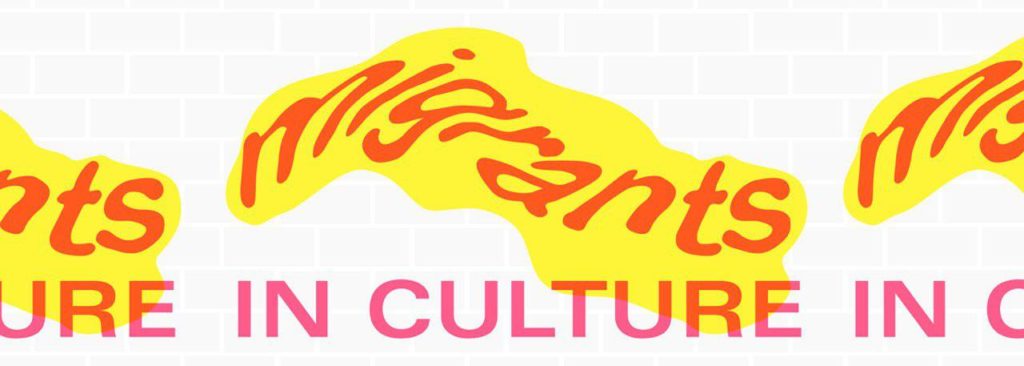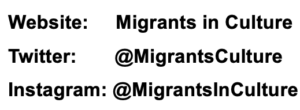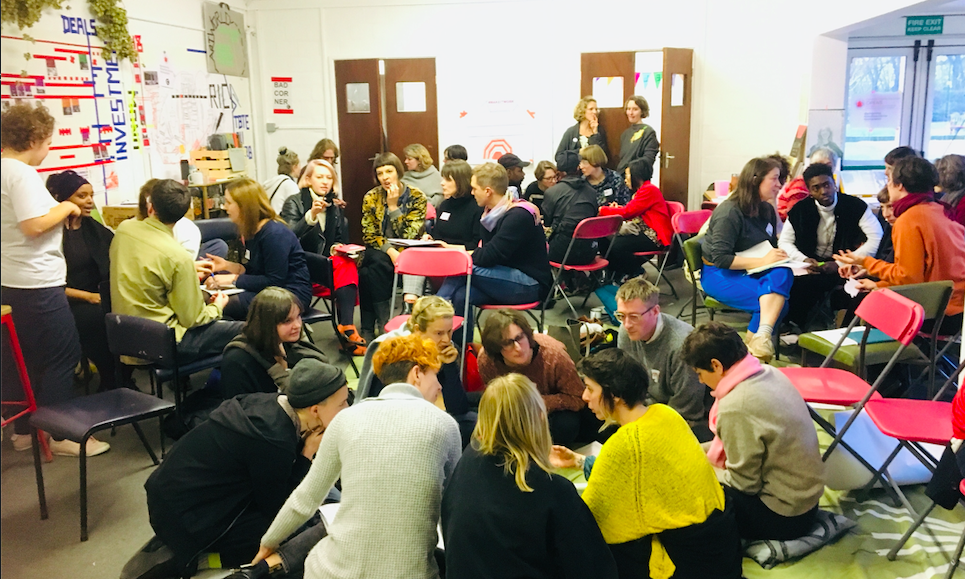'You work in culture. Make me a new culture.' It’s something that Zrinka Bralo has said to me a few times. It’s a provocation I have taken to heart. I work in culture, and think about the Hostile Environment as a culture of fear and distrust that has been forcibly embedded into our everyday lives. It will be our culture if we don’t resist it. Guest blog by Joon Lynn Goh, an organiser and member of Migrants in Culture, and a cultural producer working at the intersections of art, community organising, radical education and diverse economies.

Eight months ago, I brought together a group of migrant cultural workers with a group of migrant organisers. The gathering sought to ask – what could migrants with very different skills offer each other? What tactics across art and organising could enable us to creatively and effectively challenge migrant inequity? And what could a cultural coalition for migrant justice look like? Over a few meetings, two things became evident. One was a confirmation; what skills, resources and networks one group lacked the other had and vice versa. The other was frustrating, but a confirmation as well; we, as migrants working in the cultural sector were just not organised enough. How would we be able to share our skills and distribute any resources to a wider migrant movement when we couldn’t even organise ourselves?
This question prompted a long look at who we were. As migrant artists, educators, producers, curators and students working in culture, we began to describe our common ground… We talked about the economic and legal precarities of being a migrant and freelancing in the arts, scraping together loans to pay for visas, combing through unintelligible immigration paperwork, the wilful lack of both knowledge and support from our workplaces, the post-referendum go-home racism, the limbo of Brexit and going home, the stigma of ID checks on the job, the stigma of ID checks on our international students, being the neoliberal diversity token – hyper-visible when funding is needed and invisible when not, the art of ‘representation’ in which migrant stories are used but migrant rights are never fought for, the co-option of protest and justice for social capital ‘cool’, the forced cancellation of events as artists from ‘black and brown countries’ are turned back at the borders…
These conversations began to name our common ground as migrant cultural workers. We were well aware of our privileges in comparison to migrants seeking asylum or migrants working in outsourced and far greater exploitative circumstances, yet to name these experiences was to name our connections with a much larger set of struggles led by an intersection of migrants, people of colour, and workers against an evolving culture being normalised by the Hostile Environment Policy.
Yet where was the sector conversation or leadership in response to this oncoming culture? It felt like wilful blindness, a zombie walk into complicity with the Home Office, or a lack of a moral compass in a de-politicised market-driven sector.
What happened to our supposed role as culture makers?
We are now Migrants in Culture. We are a network of migrant cultural workers aiming to hold the cultural sector accountable to migrants, people of colour and all others being impacted by the Hostile Environment in our workplaces and neighbourhoods.
Our first action is a national survey, which aims to map the impact of the Hostile Environment on the cultural sector.
We call all those working and studying in culture, from the subsidised to the commercial, the grass-roots to higher education, for their experiences and observations.
We want to understand what culture is taking place on the ground, what is being dismissed, ignored, or progressively acted upon?
Who are our allies? And who can help us shift the operation of our sector?
The results of the survey will inform what actions we will take, with as many cultural workers as possible, to ensure that we lead cultures that create open not hostile environments.
As part of this, we are learning to organise ourselves; we are learning to organise our own sector; and we are learning to organise as part of a movement that refuses a culture of complicity in our workplaces, hospitals, schools, public services and homes. This is, at the very least, the start of a new culture.
Please help us distribute Migrant in Culture’s survey: What is the impact of the Hostile Environment on the Cultural Sector? Your workplace. Your experience.
Supported by: Migrants Organise, Independent Theatre Council, Artsquest, Art/Law Network, performingborders, Live Art Development Agency, London International Festival of Theatre, Artsadmin, Precarious Workers Brigade, Asia Art Activism, Unlimited,The Albany, Culture + Conflict amongst others.
To take a survey follow the link here or go to




